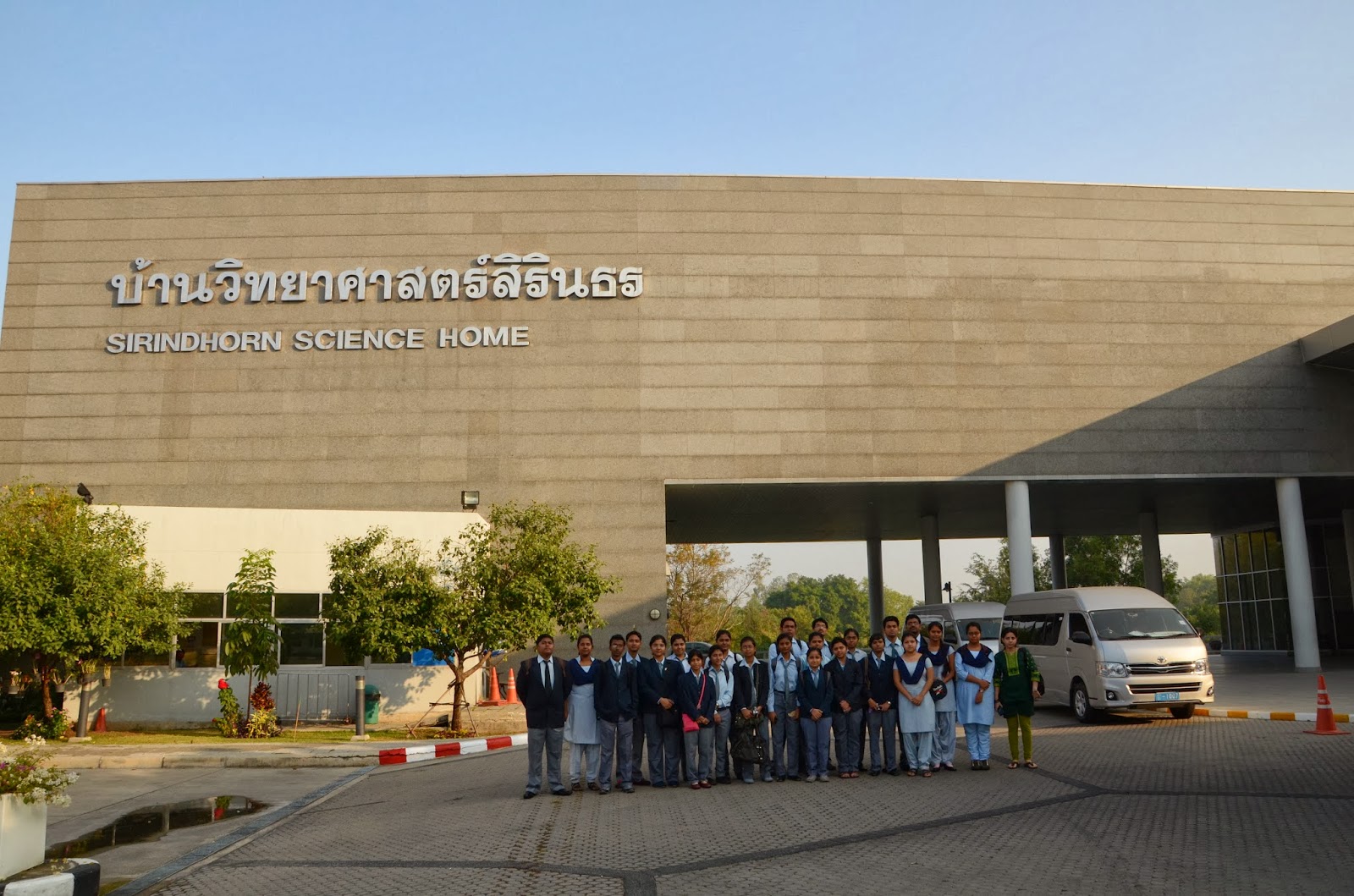Outreaching Education
Boundaries
Second Knowledge Expedition at Asian Institute
of Technology, Bangkok by JIS Group Students
Knowledge sharing is considered as one of the salient features of
teaching learning practices of the 21st Century. Innovation can be
brought about not only through assimilation of texts and classroom lectures but
also by analysis, integration, comparison and exchange of skills, expertise,
insights and know-how of other countries and cultures across the world. It has
been observed that in the current scenario, our perennial pursuit for
innovation can be assuaged effectively by fostering a knowledge sharing culture
amongst students, teachers and institutions globally. In keeping with this ism
JIS Group Educational Initiatives, one of the largest education conglomerates
in West Bengal has strategically collaborated with Asian Institute of
Technology, Bangkok one of the oldest and leading education establishments
imparting higher education in technological field. Both the institutions nurture
a muti-cultural learning ethos to bring about sustainable development in
technological research, outreach and higher education initiatives.
A remarkable initiative bearing testimony of such progressive efforts
happened when recently the brightest students across the engineering colleges
and departments under JIS Group were sponsored to participate in the knowledge
camp which was organised by Asian Institute of Technology. This session was
conducted during 5th January to 16th January 2014, in
Bangkok, Thailand. Two faculty members from JIS Group of Institutions, Prof.
Sajal Saha and Prof. Baisakhi Das
accompanied the students as their project mentors in this assignment.
The two weeks training programme was designed to give the students
exposure across the diverse fields of signals and systems, satellite
communication, augmented reality, remote sensing, health GIS, energy
engineering and management, 3D computer graphics, nano technology, transportation
engineering, urban safety and management, advanced mapping techniques. Further,
students received a golden opportunity to interact with the renowned scientists
and professors of NSTDA, NASA, JAXA (Japan aerospace agency), AIT and Bangkok
University. This apart, they derived a real time exposure on nano technology and
optoelectronics and telecommunication at GIS lab and opto electronics lab
respectively, At GIS lab they were taught about quantam GIS software which
enabled them to develop the GIS map of their respective colleges. The students
also explored the academic and heritage tourist destinations of Thailand like
Bangkok University, National
Science and Technological Development Agency, National Science Museum, ,
Bang-Pa-In Palace(summer palace of the king of royal govt. of Thailand), Bang
Sa, arts and crafts center, Ayutthaya (ancient capital of Thailand), Bang Pu to
name a few.
Cross-cultural programmes were organised to bring about a synergy
between education and extra-curricular activities wherein people from both the
cultures got acquainted and shared each
other’s thoughts, aesthetic and creative expressions.
This holistic knowledge sharing experience was not only beneficial for
the cause of training the students with contemporary cutting-edge insights and
skills but also helped them to imbibe a spirit of global connect, bridging the
wide chasm of cross cultural inhibitions and differences while simultaneously
empowering them with the limitless possibilities of knowledge.















No comments:
Post a Comment